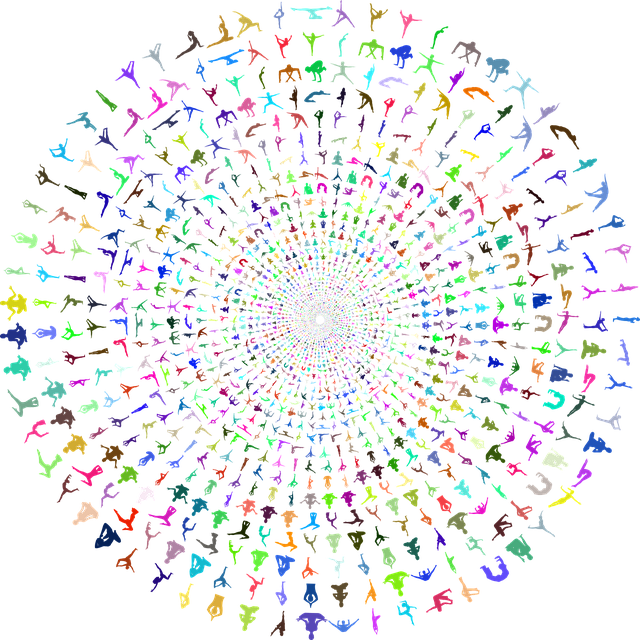Wellness programs that integrate mental health support, stress management, mindfulness, yoga, fitness, and nutrition are transforming community healthcare. These holistic initiatives cater to diverse needs, promoting physical and mental well-being by addressing the interconnectedness of all aspects of health. Through workshops, classes, and personalized guidance, these programs foster a sense of community, empower individuals to take charge of their health, and contribute to stronger, healthier communities.
In today’s fast-paced world, community support through wellness programs is more vital than ever. Holistic wellness programs that cater to both the mind and body are transforming lives and fostering stronger communities. This article explores strategies to create impactful initiatives, focusing on mental health workshops, stress management techniques, mindfulness and meditation, yoga for wellness, fitness and exercise plans, and nutrition and diet counseling. By integrating these components, we can enhance overall well-being and build resilient, supportive communities.
- Understanding the Need for Holistic Community Support
- Designing Effective Wellness Programs for Mind and Body
- Incorporating Mental Health Workshops and Stress Management Techniques
- Enhancing Community Well-being through Yoga, Fitness, and Nutrition Guidance
Understanding the Need for Holistic Community Support

In today’s fast-paced world, the need for holistic community support has become increasingly evident. Traditional healthcare systems often focus on treating symptoms rather than addressing the underlying causes of physical and mental ailments. This is where wellness programs for mind and body step in as a game-changer. By integrating various facets such as mental health workshops, stress management programs, mindfulness and meditation sessions, yoga for wellness, fitness and exercise plans, and nutrition and diet counseling, these programs cater to the diverse needs of community members.
Community support is not just about addressing individual health concerns; it’s about fostering a sense of belonging and enhancing overall well-being. Holistic wellness programs recognize that physical, mental, and emotional health are intricately linked. They encourage participation in activities that promote relaxation, connection with others, and healthy lifestyle choices. By offering accessible and inclusive options tailored to different ages, abilities, and interests, these programs ensure that everyone has the opportunity to contribute to and benefit from a healthier community tapestry.
Designing Effective Wellness Programs for Mind and Body

When designing effective wellness programs aimed at fostering community support, it’s crucial to adopt a holistic approach that addresses both the mind and body. Wellness programs for mind and body should incorporate a diverse range of activities, from mental health workshops and stress management techniques to mindfulness practices, meditation sessions, and yoga classes. These activities play a pivotal role in enhancing overall well-being by reducing stress, improving mood, and promoting healthy lifestyle habits.
Holistic wellness programs must also include fitness and exercise plans tailored to accommodate different physical abilities and preferences. Nutrition and diet counseling is another integral component, as proper nutrition is essential for maintaining both mental and physical health. By combining these elements seamlessly, community-based wellness initiatives can create a supportive environment that encourages individuals to prioritize their mental and physical health, ultimately strengthening the overall resilience and cohesion of the community.
Incorporating Mental Health Workshops and Stress Management Techniques

Incorporating Mental Health Workshops and Stress Management Techniques into holistic wellness programs is a strategic move to address the mind-body connection, which is pivotal for overall community well-being. These programs offer a range of activities like mental health workshops that delve into stress management techniques such as mindfulness and meditation, yoga for wellness, and even fitness and exercise plans. They help individuals develop coping mechanisms to handle daily pressures, thereby improving their mental resilience.
Furthermore, nutrition and diet counseling plays a significant role in holistic wellness programs, recognizing the intimate link between physical health and mental acuity. By teaching participants about balanced diets and healthy eating habits, these programs empower them to make informed choices that support both their bodies and minds. This integrated approach fosters a supportive community environment where members can enhance their overall wellness and cultivate lasting well-being.
Enhancing Community Well-being through Yoga, Fitness, and Nutrition Guidance

Community wellness programs that incorporate holistic practices such as yoga, fitness, and nutrition guidance have a profound impact on enhancing overall well-being. These initiatives address not only physical health but also mental health by providing platforms for social connection and stress management through mindfulness and meditation. Participants in these programs gain access to expert-led workshops and classes tailored to foster a sense of community while promoting healthy habits.
Yoga, for instance, has been shown to reduce anxiety and improve mood by encouraging mindfulness practices. Fitness and exercise plans designed with community support in mind can increase physical activity levels, leading to better cardiovascular health and enhanced mental resilience. Nutrition and diet counseling plays a crucial role in these programs by teaching participants about balanced eating, which is essential for both physical and mental wellness. This comprehensive approach ensures that individuals leave the program feeling empowered to make lasting positive changes in their lives.
Community support through holistic wellness programs is a powerful tool to enhance the well-being of individuals and foster a healthier society. By combining mental health workshops, stress management techniques, and physical activities like yoga and fitness, these programs offer a comprehensive approach to addressing the mind-body connection. Incorporating nutrition guidance further strengthens their impact. As we’ve explored, designing effective wellness programs tailored to community needs can lead to significant improvements in overall health and happiness, creating a more resilient and supportive environment for all.
